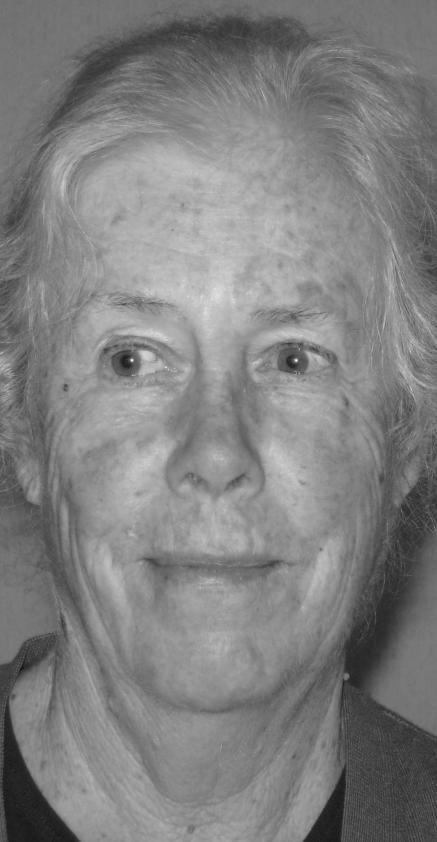European Memories
of the Gulag
BioGraphy
Juliana ZARCHI
Juliana Zarchi was born in Kaunas in 1938 of a Lithuanian father of Jewish origin and a German mother. When Lithuania was invaded by the Nazis, her father fled to the east and was killed by the Einsatzgruppen. While still a little girl she escaped from the Kaunas ghetto and managed to survive the Nazi occupation.
In August 1945, as part of a purge of ethnic Germans, she was forcibly resettled by the Soviets with her mother in Tajikistan in Central Asia, and only returned in 1962. What made her suffer most when they arrived was not the heat or the hunger or the typhus epidemics but the fact that the village children called her a “Fascist”, whereas her father had actually been killed by the Fascists. On her return, she taught German at Vytautas Magnus University in Kaunas.
Her mother tried all her life to return home to Düsseldorf in Germany. She wrote hundreds of letters to the Soviet authorities but was never authorised to leave the USSR, where she died in Kaunas in 1991.
Since Lithuania has regained its independence, Julia regularly goes to Germany, where she is invited to give talks in schools to tell the story of her family and her experience of the two dictatorships.
The interview with Juliana Zarchi was conducted in 2009 by Marta Craveri and Jurgita Mačiulytė.
-
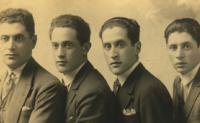 The fate of her father’s family
The fate of her father’s family
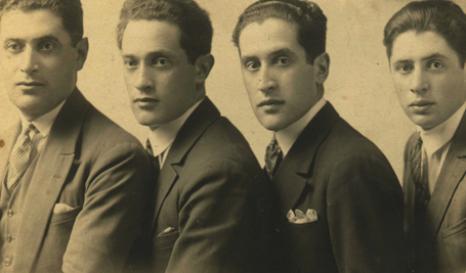
Source: Interview conducted in Lithuania by M. Craveri & J. Mačiulytė, 25/06/2009.
Licence CC BY-NC-ND.
CloseThe fate of her father’s family
Audio available / -
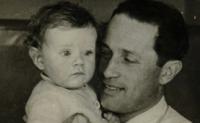 Jews “saved” by deportation
Jews “saved” by deportation
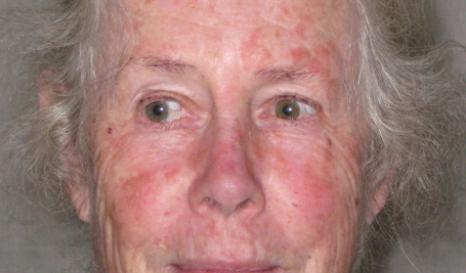
Source: Interview conducted in Lithuania by M. Craveri & J. Mačiulytė, 25/06/2009.
Licence CC BY-NC-ND.
CloseJews “saved” by deportation
Audio available / -
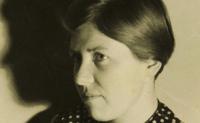 Memories of her mother’s despair 1/2
Memories of her mother’s despair 1/2
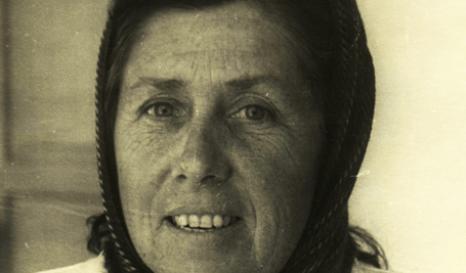
Source: Interview conducted in Lithuania by M. Craveri & J. Mačiulytė, 25/06/2009.
Licence CC BY-NC-ND.
CloseMemories of her mother’s despair 1/2
Audio available /Juliana’s mother fled Nazi Germany in 1937 and settled with her husband in Kaunas. She could speak neither Lithuanian nor Russian, which she eventually learnt, poorly, in Tajikistan.
During the interview, Juliana remembers how her mother felt foreign all her life, how she cried each time she spoke of Düsseldort. “We lived out of suitcases”, because her mother was always waiting for permission to go home. Juliana chose not to have any children for fear it would be yet another pretext for not allowing them to leave Lithuania.
-
 Memories of her mother’s despair 2/2
Memories of her mother’s despair 2/2
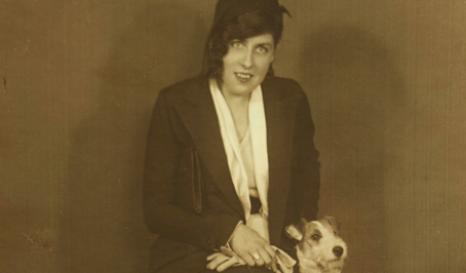
Source: Interview conducted in Lithuania by M. Craveri & J. Mačiulytė, 25/06/2009.
Licence CC BY-NC-ND.
CloseMemories of her mother’s despair 2/2
Audio available /Juliana’s mother fled Nazi Germany in 1937 and settled with her husband in Kaunas. She could speak neither Lithuanian nor Russian, which she eventually learnt, poorly, in Tajikistan.
During the interview, Juliana remembers how her mother felt foreign all her life, how she cried each time she spoke of Düsseldort. “We lived out of suitcases”, because her mother was always waiting for permission to go home. Juliana chose not to have any children for fear it would be yet another pretext for not allowing them to leave Lithuania.
-
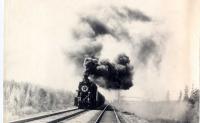 Arrest and deportation
Arrest and deportation
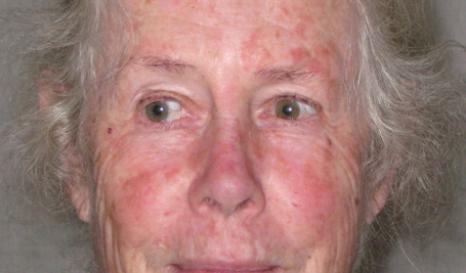
Source: Interview conducted in Lithuania by M. Craveri & J. Mačiulytė, 25/06/2009.
Licence CC BY-NC-ND.
CloseArrest and deportation
Audio available /Juliana remembers when the Soviet political police arrived at their house in Kaunas and her deportation to Tajikistan.
-
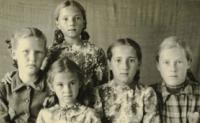 Tajik children 1/2
Tajik children 1/2
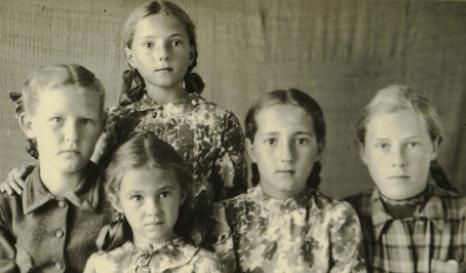
Source: Interview conducted in Lithuania by M. Craveri & J. Mačiulytė, 25/06/2009.
Licence CC BY-NC-ND.
CloseTajik children 1/2
Audio available /Juliana remembers how the Tajik children called the deported children “Fascists” and threw stones at them, her feeling of injustice and relations between the deportees and the Tajiks.
-
 Relations with the Tajiks 2/2
Relations with the Tajiks 2/2
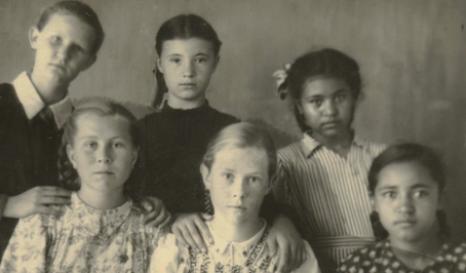
Source: Interview conducted in Lithuania by M. Craveri & J. Mačiulytė, 25/06/2009.
Licence CC BY-NC-ND.
CloseRelations with the Tajiks 2/2
Audio available /In these two extracts, Juliana remembers how the Tajik children called the deported children “Fascists” and threw stones at them, her feeling of injustice and relations between the deportees and the Tajiks.
-
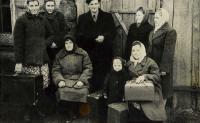 Identity and heritage
Identity and heritage
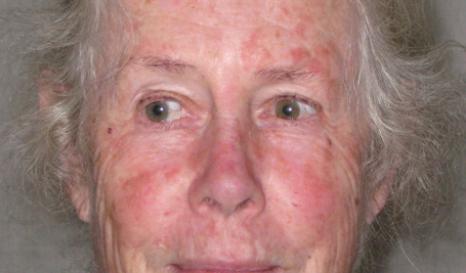
Source: Interview conducted in Lithuania by M. Craveri & J. Mačiulytė, 25/06/2009.
Licence CC BY-NC-ND.
CloseIdentity and heritage
Audio available /In this extract Juliana explains why she has felt different all her life and uses “they” to mean the Lithuanians, the Russians and the Jews. The only time she uses “we” is when she talks about the deportees.
-
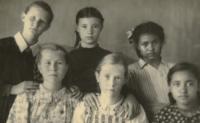 The day of Stalin’s death
The day of Stalin’s death
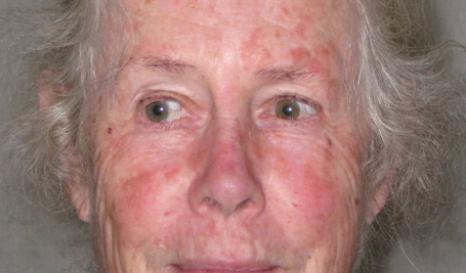
Source: Interview conducted in Lithuania by M. Craveri & J. Mačiulytė, 25/06/2009.
Licence CC BY-NC-ND.
CloseThe day of Stalin’s death
Audio available / -
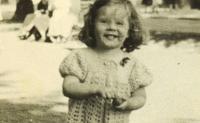 Before deportation
Before deportation
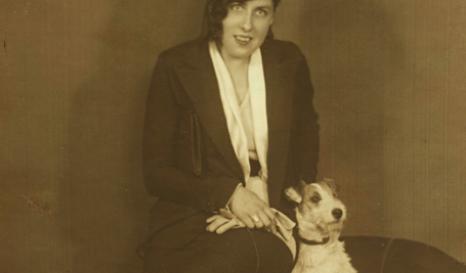
Juliana Zarchi’s mother in Germany before her marriage (Photograph, Anonymous, 1930). Source: Juliana Zarchi's Personal archive.
Media subject to copyright.
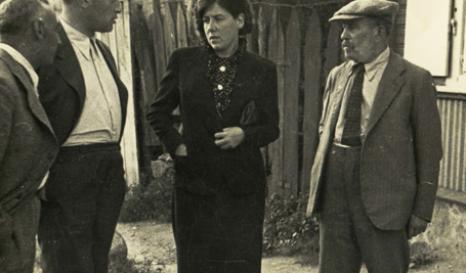
Juliana Zarchi’s mother, father and grandfather in Ukmergė (Photograph, Anonymous, 1934). Source: Juliana Zarchi's Personal archive.
Media subject to copyright.
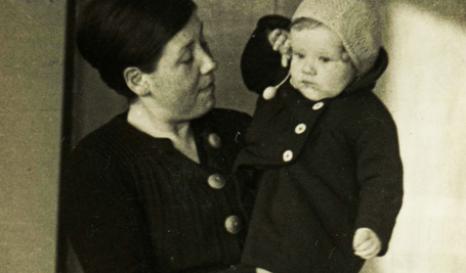
Juliana Zarchi with her mother (Photograph, Anonymous, 1939). Source: Juliana Zarchi's Personal archive.
Media subject to copyright.
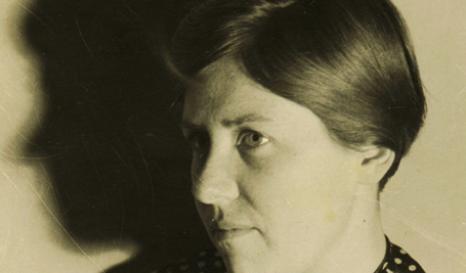
Juliana Zarchi’s mother (Photograph, Anonymous, 1938). Source: Juliana Zarchi's Personal archive.
Media subject to copyright.
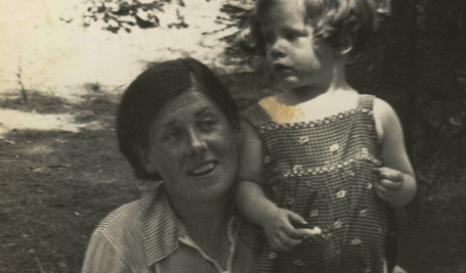
Juliana Zarchi with her mother (Photograph, Anonymous, 1939). Source: Juliana Zarchi's Personal archive.
Media subject to copyright.
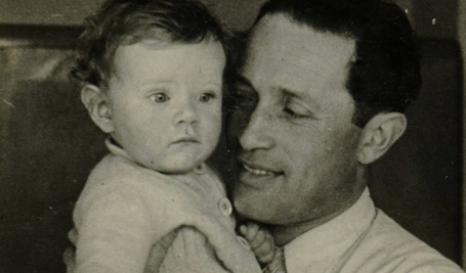
Juliana Zarchi with her father (Photograph, Anonymous, 1939). Source: Juliana Zarchi's Personal archive.
Media subject to copyright.
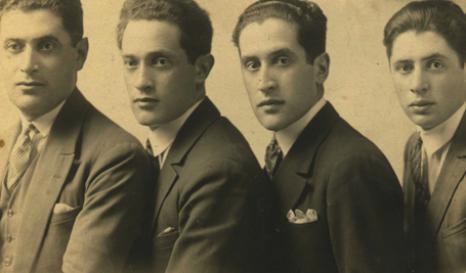
Juliana Zarchi’s father (second from left) with his brothers (Photograph, Anonymous, 1930). Source: Juliana Zarchi's Personal archive.
Media subject to copyright.
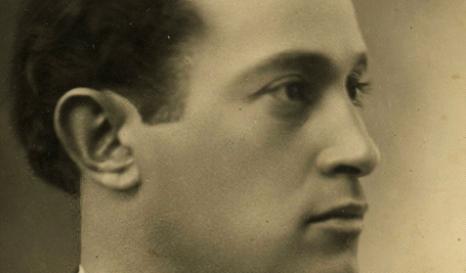
Juliana Zarchi’s father (Photograph, Anonymous, 1936). Source: Juliana Zarchi's Personal archive.
Media subject to copyright.
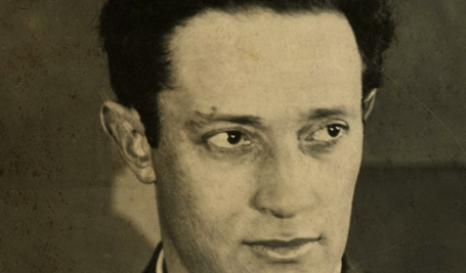
Juliana Zarchi’s father (Photograph, Anonymous, 1938). Source: Juliana Zarchi's Personal archive.
Media subject to copyright.
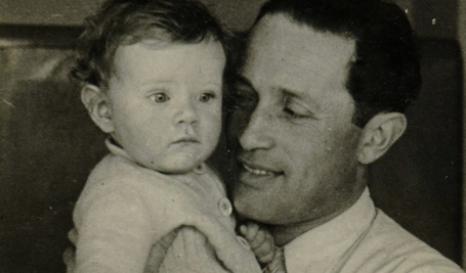
Juliana Zarchi with her father (Photograph, Anonymous, 1939). Source: Juliana Zarchi's Personal archive.
Media subject to copyright.
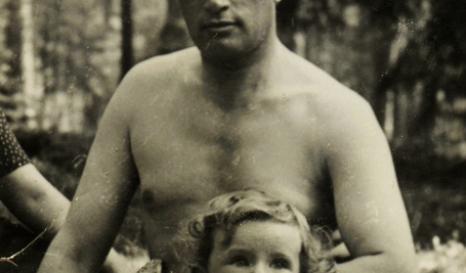
Juliana Zarchi with her father (Photograph, Anonymous, 1939). Source: Juliana Zarchi's Personal archive.
Media subject to copyright.
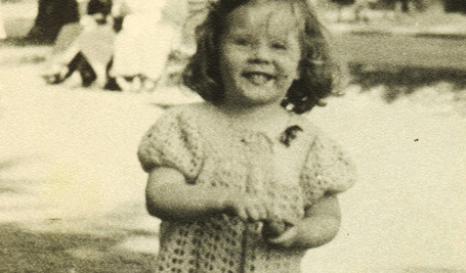
Juliana Zarchi at age 4 (Photograph, Anonymous, 1942). Source: Juliana Zarchi's Personal archive.
Media subject to copyright.
CloseBefore deportation
Juliana and her parents between 1937 and 1941
-
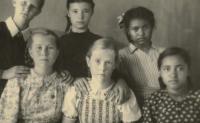 Resettlement
Resettlement
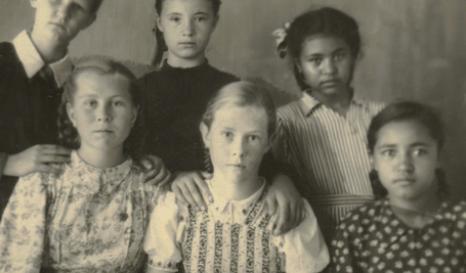
Juliana Zarchi (bottom centre) with schoolfellows (Photograph, Anonymous, circa 1950). Source: Juliana Zarchi's Personal archive.
Media subject to copyright.
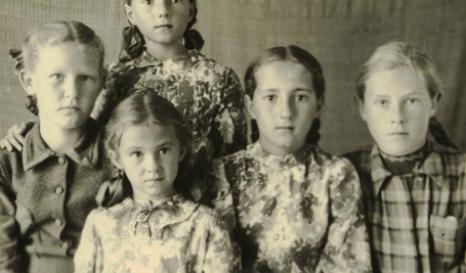
Juliana Zarchi (first right) with schoolfellows (Photograph, Anonymous, circa 1950). Source: Juliana Zarchi's Personal archive.
Media subject to copyright.
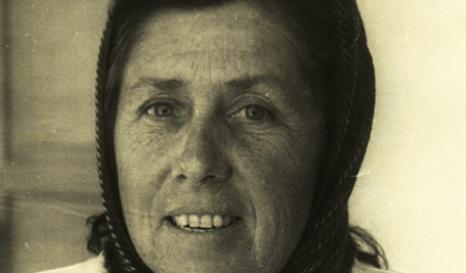
Juliana Zarchi’s mother in Tajikistan (Photograph, Anonymous, 1948-1953). Source: Juliana Zarchi's Personal archive.
Media subject to copyright.
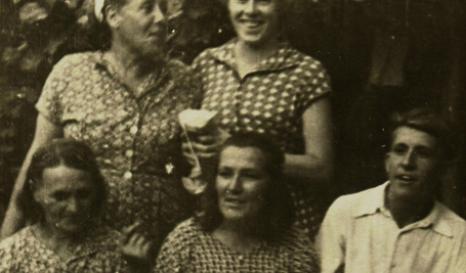
Juliana Zarchi (top right) in Tajikistan with her mother and other resettlers (Photograph, Anonymous, 1958-1960). Source: Juliana Zarchi's Personal archive.
Media subject to copyright.
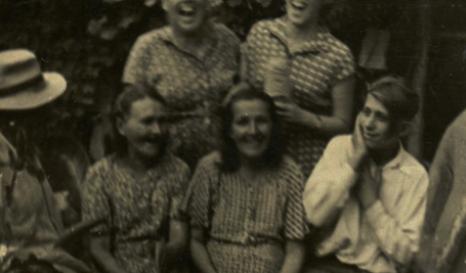
Juliana Zarchi (top right) in Tajikistan with her mother and other resettlers (Photograph, Anonymous, 1958-1960). Source: Juliana Zarchi's Personal archive.
Media subject to copyright.
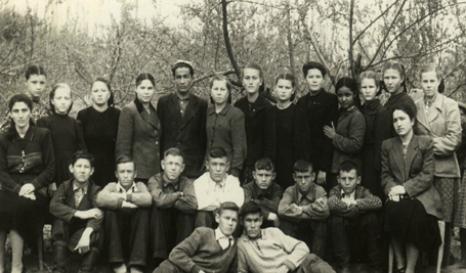
Juliana Zarchi (top right) with her secondary school fellows in Tajikistan (Photograph, Anonymous, 1952-1956). Source: Juliana Zarchi's Personal archive.
Media subject to copyright.
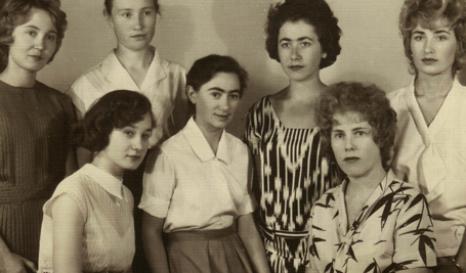
Juliana Zarchi (bottom right) with friends, just before her return (Photograph, Anonymous, 1962). Source: Juliana Zarchi's Personal archive.
Media subject to copyright.
CloseResettlement
Juliana celebrated her seventh birthday in the cattle wagon taking her with her mother to Tajikistan, where she went to school and grew up. Not until 1962 did she finally return to Kaunas.


